Marmite sprouts? Why retailers are pushing the boundaries with festive food
- Published
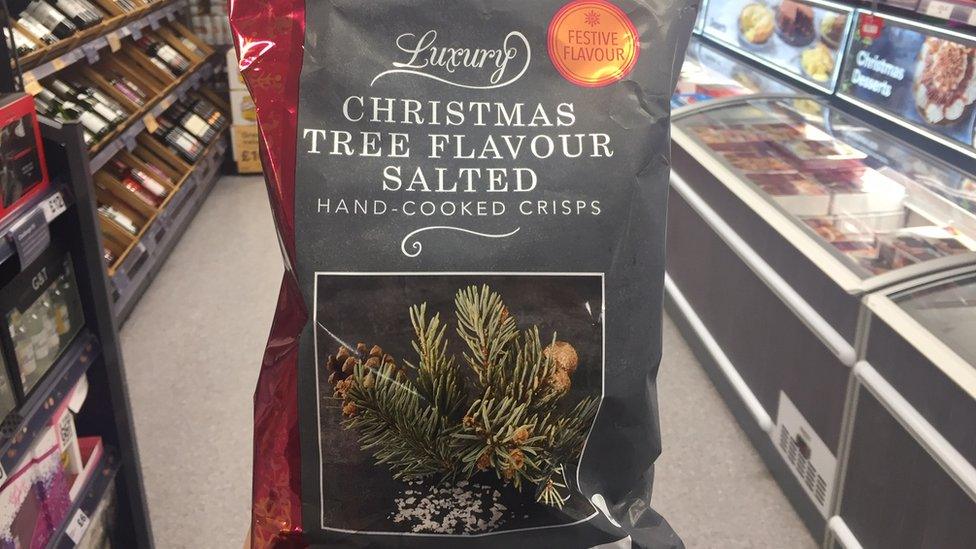
Many readers will find the thought of Christmas tree-flavoured crisps revolting, but Iceland is betting its customers will feel the opposite this festive season.
The crisps are part of the supermarket chain's festive food range, and have a distinct pine-like taste thanks to their pine salt seasoning, which is made with pine tree oil.
It is part of a wider trend for novel, sometimes bizarre fusion foods that has swept the UK over the last few years as retailers vie for our attention and our cash.
But some have questioned whether the trend has gone too far, with newspapers calling Iceland's crisps "dubious" and consumers mocking them on social media.
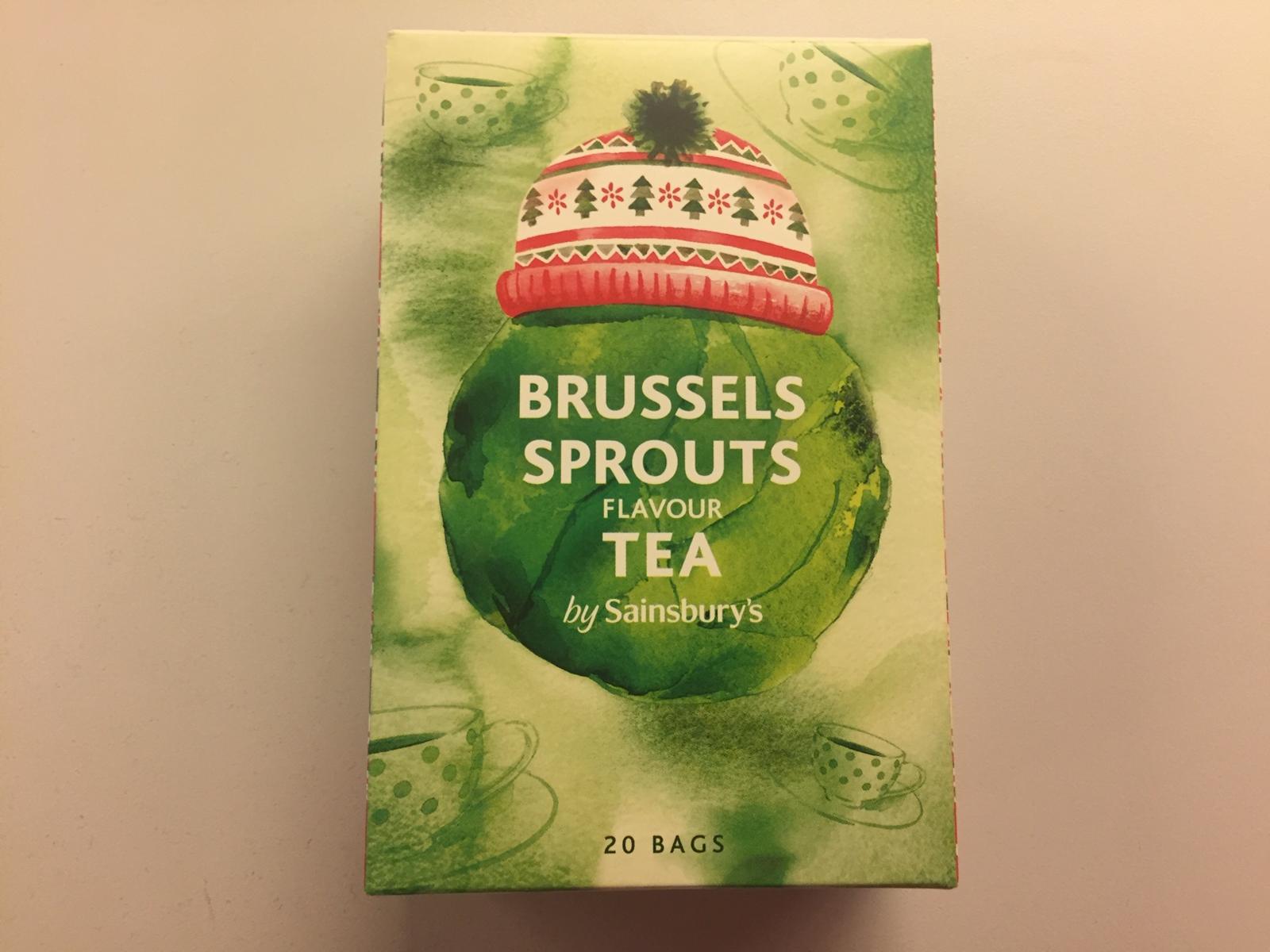
Anyone for tea? Brussels sprouts tea?
Iceland says the crisps offer a "completely new combination, unlike any other festive flavour", but shoppers I speak to outside a branch in Clapham, south London are divided.
"It tastes a bit organic, kind of herby. They have a good aroma and feel kind of Christmassy," says Rory.
He likes the fact Iceland is catering to niche tastes and would potentially buy the crisps, although another shopper Martin is unconvinced.
"It tastes a little bit earthy, like dirt I guess. It's pretty unpleasant," he says. "To me it stands out as a bit of a gimmick, it's just cashing in ahead of Christmas."

Martin thinks Iceland's new crisps are "pretty unpleasant"
Other experimental Christmas foods on sale in recent seasons have included Brussels sprouts-flavoured tea (containing granulated sprouts) from Sainsbury's, Christmas pudding smoothies from M&S and turkey breast-infused gin from Portobello Road Gin.
Restaurants and café chains are getting in on the act too, with Costa Coffee selling pigs in blankets mac and cheese, and Pizza Express offering a pizza complete with turkey, festive stuffing and rosemary.
Analysts say these novel creations help operators to differentiate themselves in an increasingly competitive climate. Market research firm Mintel says only 7% of grocery shoppers stick with one retailer in a single month and they are increasingly likely to spread their spending across brands.
"There's no doubt there's a marketing angle to this but consumers also love new products and it creates interest and excitement," says Mintel senior retail analyst Nicholas Carroll.
"It is hard to say whether [the more experimental creations] sell well, but the trend has been accelerating so there has to be demand."

Festive fusion creations on sale this year
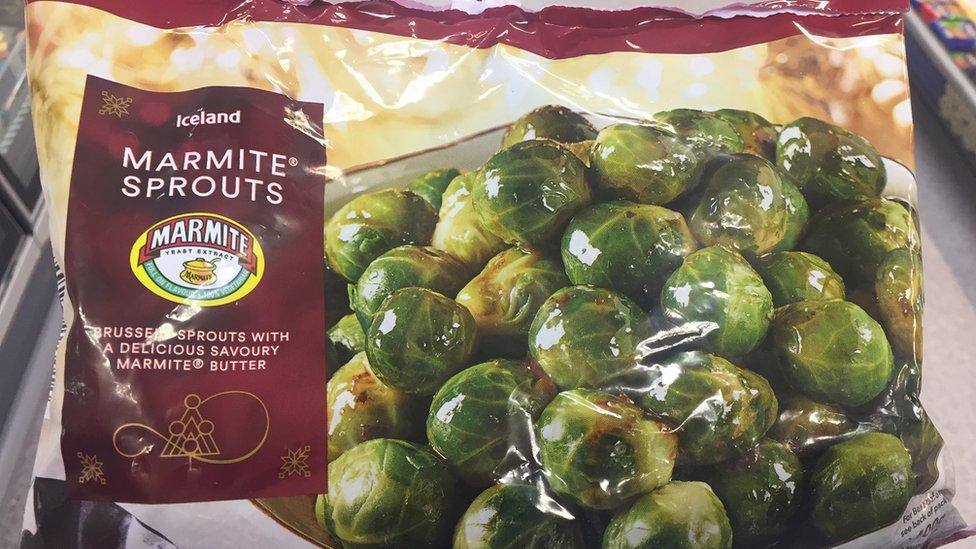
Marmite sprouts (Iceland): in this simple recipe the festive vegetable is coated in a Marmite butter
Mince pie croissants (café chain Paul): flaky all-butter croissants, filled with sweet mincemeat and dusted with icing sugar
Christmas pudding gammon (Aldi): sweet cured gammon with a fruit-filled stuffing and rich "mince pie glaze", topped with edible gold lustre
Battered Brussels sprouts (Poppie's Soho): served in newspaper-style wrapping
Winter berries and prosecco crisps (M&S): flavoured with dried prosecco, raspberry juice and sea salt

Operators say the sales of some Christmas inventions have been strong reflecting consumer demand for more experimental flavours alongside traditional Christmas classics.
But they don't always get it right and often pull creations or change them following feedback, one example being Asda's Christmas dinner pizza.
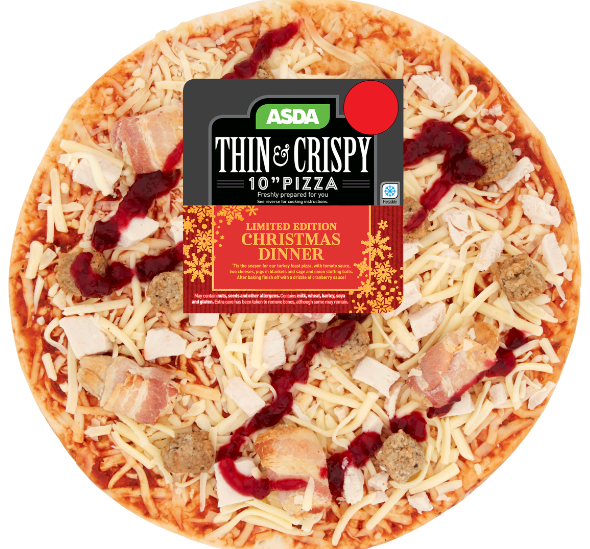
Asda's Christmas dinner pizza: the new and improved version
"This year, we've listened to customer and colleague feedback and have ditched the sprouts in favour of pigs in blankets and stuffing balls, and it's already proving very popular," says Linsey Taylor, senior director of new product development at Asda.
Carol Raithatha, a sensory science expert, says retailers will often work with consumers to find concepts that work before developing them. These might build on classic flavour combinations like sweet and sour or current food trends such as veganism or Mexican cuisine.
"Once the concept is there, you can use trained assessors to understand the sensory profiles of the foods you want to combine or create," she says.
"It is then about pulling out the key flavours that define a food or idea rather than making wholesale extracts."
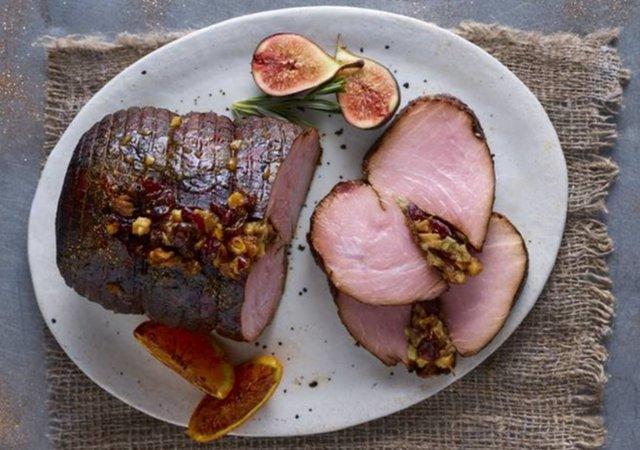
Aldi's Christmas pudding gammon - an acquired taste, perhaps...
Sainsbury's, for instance, is selling a pigs-in-blankets tea this year but it contains no meat, instead blending Lapsang Souchong tea with sage and rosemary, two ingredients commonly found in British sausages.
Other recipes are more literal interpretations though, such as M&S's Brussemole, launched in 2015, which used sprouts instead of avocado in its take on the famous Mexican dip.
Some experts say the fad for festive-flavoured food may already be passing, however, and there are signs retailers are pulling back. M&S, for example, says it will focus more on classic dishes this year and less on "weird and wacky flavours", while restricting quirkier fare to its Christmas party range.
"You can only take it so far," says Robbie Bargh, the founder of Gorgeous Group, which advises restaurants and hotel groups such as Radisson on food.
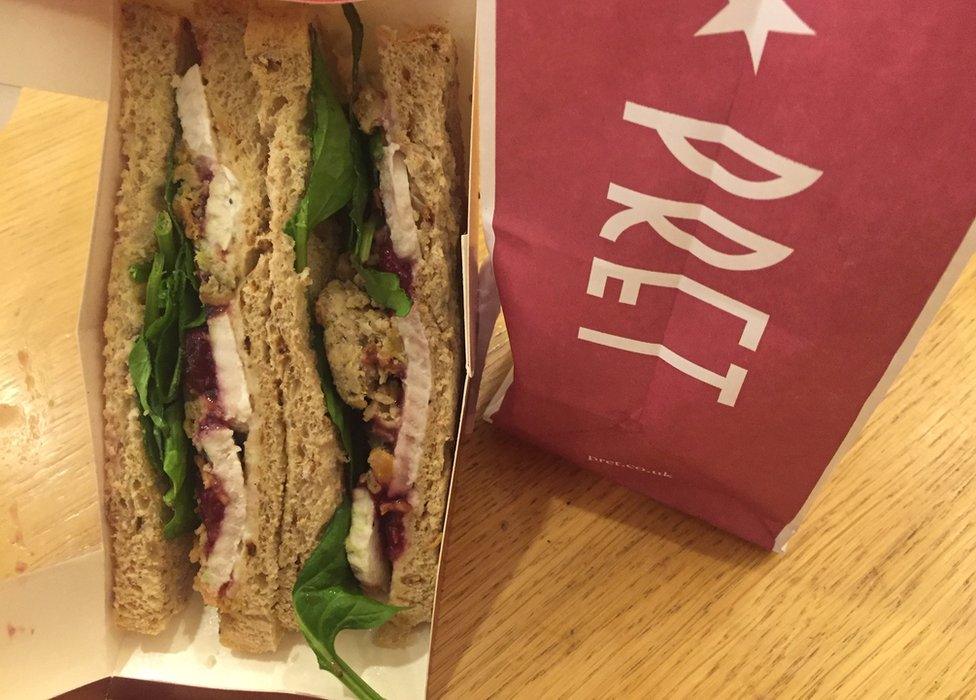
Robbie Bargh says Christmas sandwiches work well
"If I saw Christmas-themed sushi I would be put off, a Christmas dinner pizza doesn't sound quite right either."
He says it is nice for cafés and restaurants to give a nod to Christmas but operators should focus on flavours rather than trying to reinvent the wheel.
"Ingredients like cinnamon and nutmeg provide nice Christmas touches to coffees and chai teas, while classic Christmas dinner sandwiches work well. It's when people jump on the bandwagon that it's a problem."
However, he says he did try an excellent mince pie-flavoured ice cream recently, admitting: "Most of it is marketing but occasionally you find something amazing."
- Published13 November 2018

- Published6 November 2018

- Published12 September 2018
